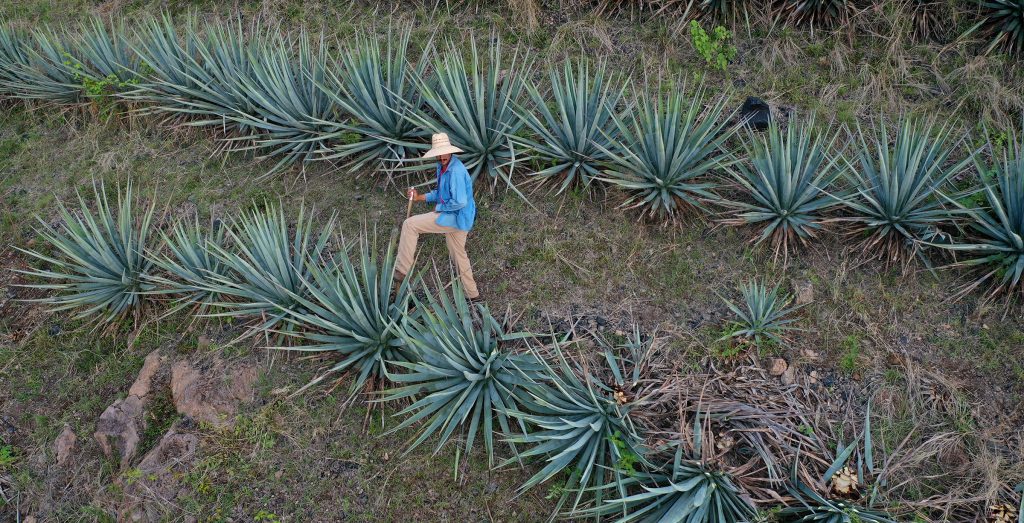
Fans of the aged tequilas, take note. You could be facing a shortage of your favorite sippers, higher prices, or both, as several sources report that they have no more añejo tequila to sell into the marketplace.
“Producers have been reluctant to lay down spirit with these high prices (for agave), thinking the price would drop, but it hasn’t and reserves are drying up,” says Jake Lustig, owner of the ArteNOM Selección tequila brand.
The price of the raw material to make tequila has spiked in recent years, reaching a high of 32 pesos a kilo, compared to just under 4 pesos per kilo in 2016.
Agave prices have always gone through a cycle of boom and bust pricing, since growers often abandon the crop when they are getting almost nothing for it, only to replant when they see the prices climb. But the latest price spike has been unusually prolonged. We have recorded prices above 25 pesos a kilo since 2017.
Just to give you an idea of the capital required to make tequila, at 30 pesos a kilo one large oven load alone costs around $40,000 USD (for non-organic agaves.)
This means that tequila producers have faced a dilemma for some time. Should they wait one year or more (the time required to call a tequila “añejo”) as their product rests in barrels before they get a return on their investment, or simply focus on making blanco tequila, or a lightly aged reposado, instead?

High Agave Prices Meet High Demand
While pricing pressures have put a squeeze on production, there’s another factor affecting añejo supply—soaring demand amid the pandemic. Tequila sales grew over 54% by revenue and 38% by volume in 2020, outperforming all other spirit categories.
The surge in demand has left extra añejo (XA) reserves, which require at least three years of aging, greatly depleted. And now, añejos are starting to get harder to come by.
“We noticed popular añejos and extra añejos, like Don Julio 1942, Patrón Extra Añejo, and Clase Azul Añejo, have been frequently selling out for long stretches of time since last year,” said Roman Romaya of Old Town Tequila in San Diego, CA.
“Now we are selling out of any añejo in the $100 to $300 range.” he says.
This may be because many customers still aren’t able to go to bars, but also realize that they can get an entire bottle for what they would’ve spent during a night out.
“They are going top shelf, at home,” Romaya says.
Now, producers say that the añejo hunt is on.
“Every week I get calls from brands and distilleries looking to buy añejo tequila from me in bulk, but I only have enough for my brands,” says Jaime Villalobos Sauza, Master Distiller of Suave Tequila. “Right now, it’s difficult to find.”

Of course, more demand and less supply is resulting in higher prices. According to Romaya, they are seeing across the board price hikes on tequila, and the situation is no better in Mexico.
“There is no more añejo,” says Emilio Ferreira Ruiz, owner of the Tequilas El Buho store in Tlaquepaque, Jalisco. “And prices are up, even for blancos—although not as much—since agave prices remain high,” he says.
A Clear Competitor
Finally, there seems to be another driver in the añejo shortage: cristalinos. Typically, these are añejo or extra añejo tequilas that have been filtered to remove the color added by the barrels during aging, resulting in a clear or nearly clear spirit that is marketed as “smoother” or premium.
Cristalinos have been one of the fastest growing tequila segments in Mexico, and they are now taking off in the United States. Some producers have used their aged stock to meet the demand, leaving them with less non-filtered añejo.
We asked Ferreira Ruiz whether the cristalino trend was depleting anejo reserves. “Certainly,” he says.
And, there’s another twist — a surge of new cristalino tequilas made with reposado tequila, which can be aged as little as two months.
“This is due to a lack of añejo,” Ferreira Ruiz says.
We’ve noted 14 reposado cristalinos in our database — many added recently — with more presumably on the way.

What’s An Añejo Lover To Do?
Even if you can’t find your favorite añejos right now, the good news is there are a lot of brands on the market and not all are having supply issues. Producers that have their own barrel programs and reserves (such as Tequila Fortaleza, Don Fulano, Casa Noble, and Tapatío) are reporting business as usual.
“For future añejos and extra añejos, for all of our brands, we started filling more barrels than originally planned ahead of time,” says Carlos Camarena, Master Distiller for Tapatío, Tequila Ocho, and El Tesoro de Don Felipe. This was in response to the fast-growing demand for añejo and extra añejo products.
So, take this opportunity to try some aged tequilas you’ve never had before, or would like to revisit. It probably won’t be long until more aged sippers reappear on the shelves, just at a higher price.

